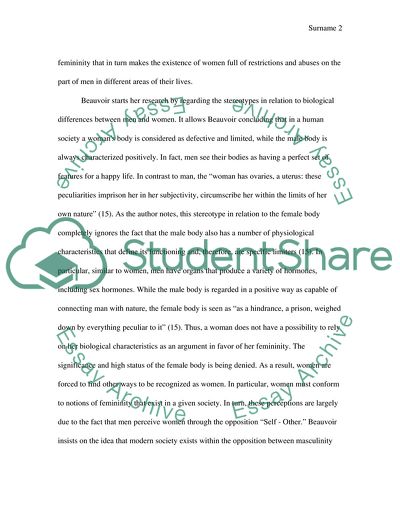Cite this document
(Political Theories of Sexuality: Simone de Beauvoir on the Woman as Coursework Example | Topics and Well Written Essays - 2000 words - 1, n.d.)
Political Theories of Sexuality: Simone de Beauvoir on the Woman as Coursework Example | Topics and Well Written Essays - 2000 words - 1. https://studentshare.org/social-science/1850911-political-theories-of-sexuality
Political Theories of Sexuality: Simone de Beauvoir on the Woman as Coursework Example | Topics and Well Written Essays - 2000 words - 1. https://studentshare.org/social-science/1850911-political-theories-of-sexuality
(Political Theories of Sexuality: Simone De Beauvoir on the Woman As Coursework Example | Topics and Well Written Essays - 2000 Words - 1)
Political Theories of Sexuality: Simone De Beauvoir on the Woman As Coursework Example | Topics and Well Written Essays - 2000 Words - 1. https://studentshare.org/social-science/1850911-political-theories-of-sexuality.
Political Theories of Sexuality: Simone De Beauvoir on the Woman As Coursework Example | Topics and Well Written Essays - 2000 Words - 1. https://studentshare.org/social-science/1850911-political-theories-of-sexuality.
“Political Theories of Sexuality: Simone De Beauvoir on the Woman As Coursework Example | Topics and Well Written Essays - 2000 Words - 1”. https://studentshare.org/social-science/1850911-political-theories-of-sexuality.


